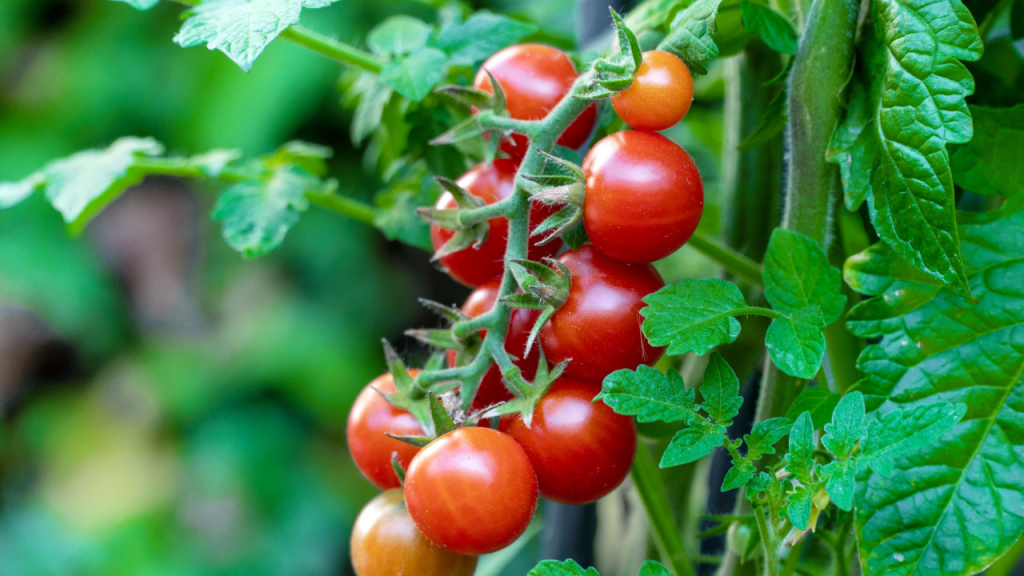For centuries, the tomato was treated with deep suspicion—viewed as dangerous, immoral, even deadly. But how did this reviled fruit transform into a staple of global cuisine? According to one small town in New Jersey, it all began on their courthouse steps.
While Salem, Massachusetts is famous for its witch trials, Salem, New Jersey has its own curious chapter of misunderstood history. In this rural town, a legendary event involving tomatoes helped shift public perception of what was once known as the “poison apple.”
The Tomato’s Dangerous Reputation
The tomato’s journey began in the Americas, where the Aztecs cultivated and consumed it, even giving it its name. Spanish and Portuguese explorers brought it to Europe in the 16th century, but the tomato didn’t receive a warm welcome. Its bright red color was associated with danger and sin, and herbalists like Pietro Andrea Mattioli classified it among nightshades and mandrakes—plants often linked with witchcraft and aphrodisiacs.
By 1597, English botanist John Gerard declared the tomato “corrupt” and possessing a “rank and stinking savor,” cementing its unsavory reputation in Britain and its colonies. The fruit’s nickname, “poison apple,” stemmed from reports that aristocrats fell ill or died after eating it. The real culprit, however, was their pewter tableware: the tomato’s acidity leached lead from the plates, causing poisoning.
In colonial America, tomatoes were grown more out of curiosity than for consumption. “For those who came to America in the colonial period, it just wasn’t on their agenda,” says historian Andrew F. Smith, author of The Tomato in America: Early History, Culture, and Cookery.
A Tomato Trial in Salem?
Legend has it that in 1820, Robert Gibbon Johnson, a Salem farmer and horticulturist, stood on the courthouse steps and publicly consumed a basket of tomatoes to prove they were not deadly. When he survived, the myth goes, the public perception of tomatoes began to change.
But did it really happen? There’s no official record of Johnson’s dramatic act. The first account appeared in 1937, over a century later, in Joseph S. Sickler’s History of Salem County, New Jersey. While there is evidence Johnson grew tomatoes, historian Smith cautions against viewing him as the lone hero: “A lot of people were growing tomatoes by then,” he notes. By the 1830s, tomato recipes and cookbooks were circulating widely.
Nevertheless, the story stuck—especially in Salem.
How the Legend Lived On
Though unverified, Johnson’s tomato-eating spectacle captured the imagination. It was later chronicled in Harry Emerson Wildes’s 1940 book The Delaware, and further dramatized by Stewart Holbrook in Lost Men of American History (1946). In 1949, CBS radio broadcast a reenactment of the event on You Are There, with Sickler as the historical consultant.
From 1989 to 2022, Salem celebrated this folklore with the annual Tomato Festival, complete with costumed reenactments and, of course, plenty of tomatoes. However, the festival was paused after the town reckoned with a darker truth—Johnson had enslaved a woman named Amy Hester Reckless.
Still, the tomato’s legacy in Salem persists. Curtis Harker, the County of Salem’s records manager, links the town’s pride to several sources: the giant, flavorful Salem tomato; the Heinz Company’s local ketchup plant that operated for a century; and the enduring charm of the Johnson tale.
“It’s the combination of all those things,” Harker says. “The story’s funny, the tomatoes are amazing, and Heinz gave the whole city that ketchup smell for decades.”
Despite the shadow cast by its mythology, the tomato remains a point of pride for Salem. It may not have been poisonous, but its history—and its hold on this small town—is undeniably potent.



